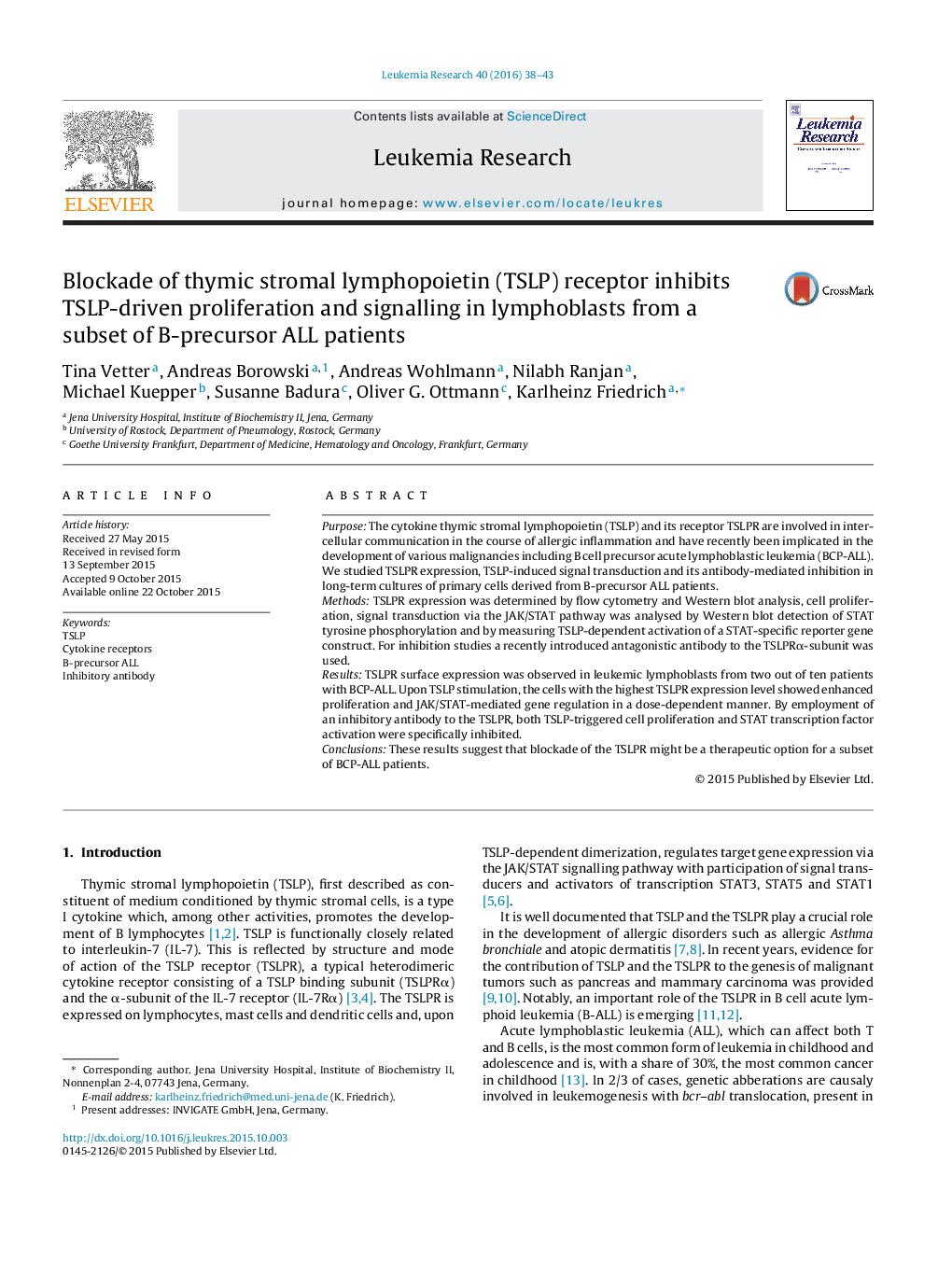| Article ID | Journal | Published Year | Pages | File Type |
|---|---|---|---|---|
| 2136461 | Leukemia Research | 2016 | 6 Pages |
•Lymphoblasts from roughly 20% of B cell precursor ALL patients express the TSLP receptor.•TSLP triggers proliferation and JAK/STAT-mediated gene regulation in TSLPR+ BCP-ALL cells.•TSLPR inhibition represses proliferation and STAT activity in TSLPR+ BCP-ALL cells.•Blockade of the TSLPR is a potential therapeutic option for a subset of BCP-ALL patients.
PurposeThe cytokine thymic stromal lymphopoietin (TSLP) and its receptor TSLPR are involved in intercellular communication in the course of allergic inflammation and have recently been implicated in the development of various malignancies including B cell precursor acute lymphoblastic leukemia (BCP-ALL). We studied TSLPR expression, TSLP-induced signal transduction and its antibody-mediated inhibition in long-term cultures of primary cells derived from B-precursor ALL patients.MethodsTSLPR expression was determined by flow cytometry and Western blot analysis, cell proliferation, signal transduction via the JAK/STAT pathway was analysed by Western blot detection of STAT tyrosine phosphorylation and by measuring TSLP-dependent activation of a STAT-specific reporter gene construct. For inhibition studies a recently introduced antagonistic antibody to the TSLPRα-subunit was used.ResultsTSLPR surface expression was observed in leukemic lymphoblasts from two out of ten patients with BCP-ALL. Upon TSLP stimulation, the cells with the highest TSLPR expression level showed enhanced proliferation and JAK/STAT-mediated gene regulation in a dose-dependent manner. By employment of an inhibitory antibody to the TSLPR, both TSLP-triggered cell proliferation and STAT transcription factor activation were specifically inhibited.ConclusionsThese results suggest that blockade of the TSLPR might be a therapeutic option for a subset of BCP-ALL patients.
